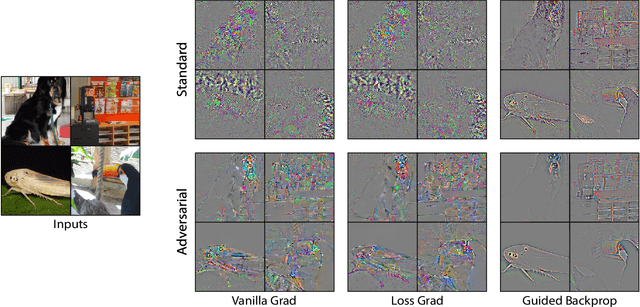What Do Adversarially Robust Models Look At?
Paper and Code
May 19, 2019



In this paper, we address the open question: "What do adversarially robust models look at?" Recently, it has been reported in many works that there exists the trade-off between standard accuracy and adversarial robustness. According to prior works, this trade-off is rooted in the fact that adversarially robust and standard accurate models might depend on very different sets of features. However, it has not been well studied what kind of difference actually exists. In this paper, we analyze this difference through various experiments visually and quantitatively. Experimental results show that adversarially robust models look at things at a larger scale than standard models and pay less attention to fine textures. Furthermore, although it has been claimed that adversarially robust features are not compatible with standard accuracy, there is even a positive effect by using them as pre-trained models particularly in low resolution datasets.
 Add to Chrome
Add to Chrome Add to Firefox
Add to Firefox Add to Edge
Add to Edge